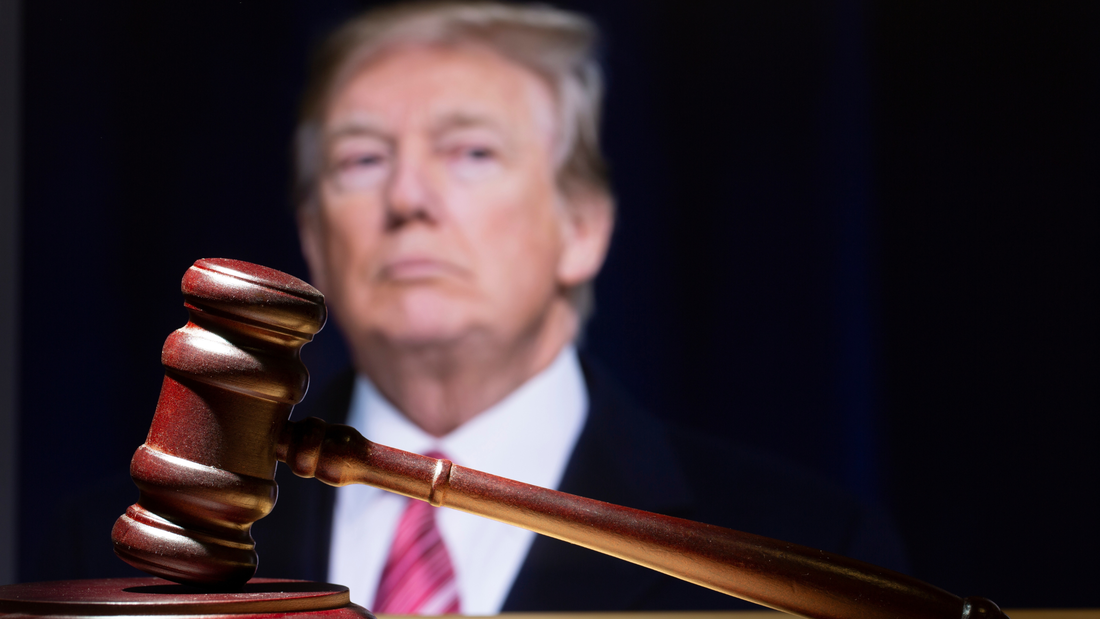|
Donald Trump’s hush money trial is bringing new meaning to the term “hush” following Justice Juan Merchan’s issuance of a gag order to protect his and the prosecutor’s family members from attack.
Trump recently posted a photo of the judge’s daughter on Truth Social claiming that she “has just posted a picture of me behind bars, her obvious goal, and makes it completely impossible for me to get a fair trial.” According to the court, the Twitter account in question is not hers. A court spokesperson said of the account: “It is not linked to her email address, nor has she posted under that screenname since she deleted the account. Rather, it represents the reconstitution, last April, and manipulation of an account she long ago abandoned.” Whether Trump knew his post was untrue or just didn’t care is uncertain. Even assuming Justice Merchan’s daughter is likely no fan of Trump -- she works for a Democratic consulting firm – there are limits to how far one can go in attacking family members of those involved in a criminal trial. Defendants are limited in what they can say all the time out of concern for the integrity of the trial process and the safety of its participants. Trump should not receive special treatment – neither more nor less restrictive – than any other defendant. Following the seemingly false and inflammatory statements targeting his daughter, Justice Merchan issued an expanded gag order against Trump, noting (vehemently) that: “It is no longer just a mere possibility or a reasonable likelihood that there exists a threat to the integrity of the judicial proceedings. The threat is very real. Admonitions are not enough, nor is reliance on self-restraint. The average observer, must now, after hearing defendant's recent attacks, draw the conclusion that if they become involved in these proceedings, even tangentially, they should worry not only for themselves, but for their loved ones as well. Such concerns will undoubtedly interfere with the fair administration of justice and constitutes a direct attack on the Rule of Law itself.” While such concerns must indeed factor into the analysis of any gag order, a delicate balancing act is needed for court-ordered restrictions on speech. Courts uphold free speech and the First Amendment, yet they are themselves not venues for free speech, but rather islands of due process, less free-wheeling and more deliberative than the public square. When the raucous freedom of the public square intrudes upon the judicial process, limited and narrowly tailored protections to safeguard the judicial process can be necessary. This is an odd point of tension between competing constitutional and legal principles in the American system, but it is one necessary for the proper functioning of our judicial system. As with so many issues these days, this case is fraught with dilemmas. On the one hand, it is extremely problematic for a presidential candidate to face a judicial gag order. On the other hand, harshly (and perhaps falsely) attacking a judge’s family member is one of those situations – like falsely yelling “fire” in a crowded theater – where “imminent lawless action,” and an imminent threat to the integrity of the judicial proceeding in question, could arguably materialize. Whatever you think of this case against Donald Trump – some would characterize it as “lawfare” against him, some might flip the characterization around in the other direction – Donald Trump crossed a line. A limited – very limited – gag order is an acceptable response in a society that values the impartial administration of justice as well as speech. Judge Merchan should nonetheless remain vigilant to keep his own emotions in check, not be provoked into over-reacting, and give as much leeway as possible to the sometimes-hyperbolic speech inherent in the political process while still ensuring the integrity of the judicial process. Comments are closed.
|
Archives
June 2024
Categories
All
|
ABOUT |
ISSUES |
TAKE ACTION |



 RSS Feed
RSS Feed